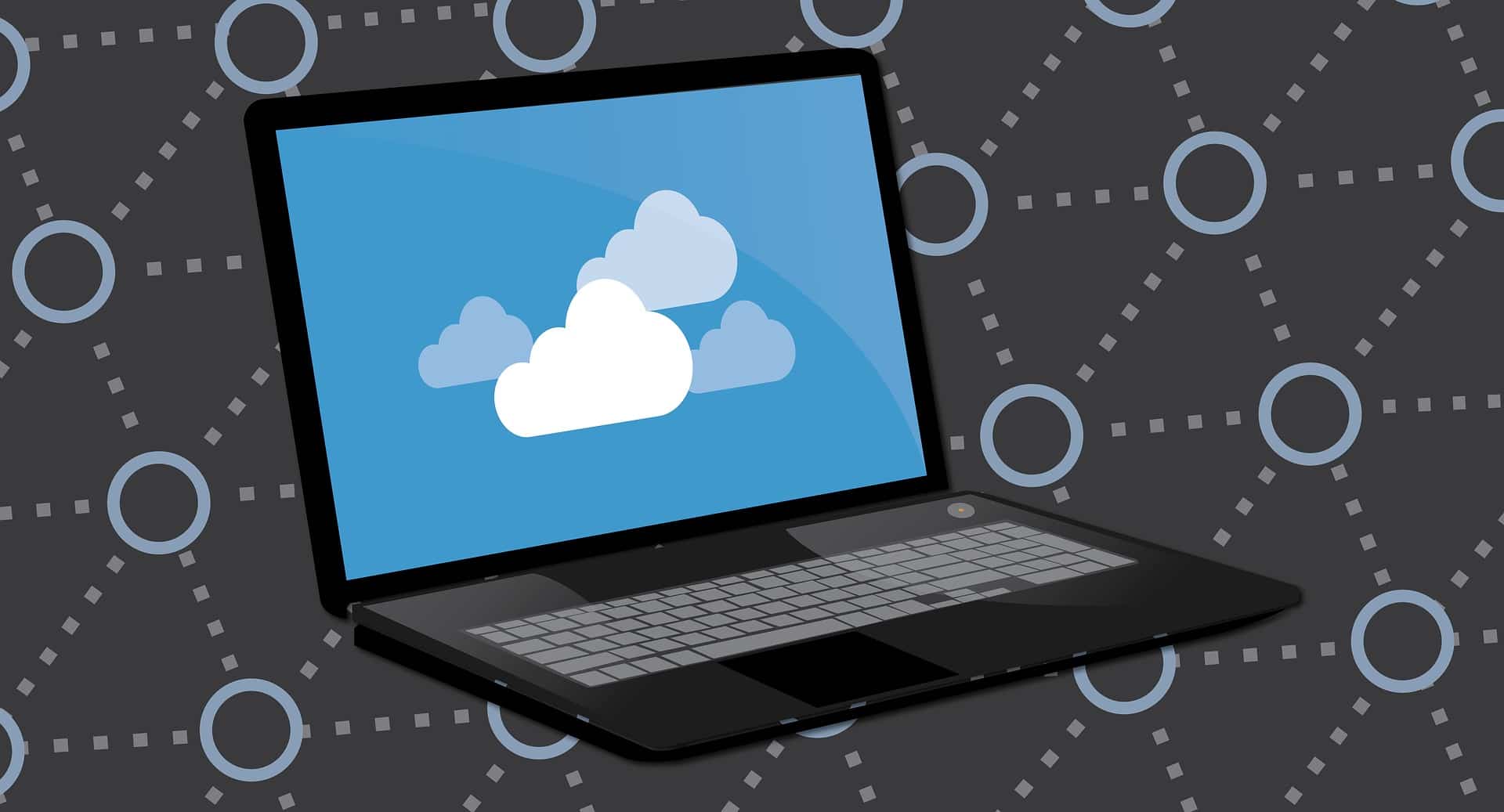The popularity of the cloud is growing every year and it simply can’t be ignored. As much as 92% of businesses have a multi-cloud strategy in the works or in place. And if you take a look at the infrastructure that is being implemented, it’s clear to see cloud solutions are the future.
Cloud backup is now recognized as one of the most efficient and safest ways an organization can store its data. In fact, as much as 50% of the world’s corporate data is stored in the cloud and that number will undoubtedly keep increasing year by year.
So why is the cloud becoming so important and widely used and what is cloud backup? There are many reasons you can point to, but the main one is that data has become an irreplaceable part of day-to-day operations for millions of organizations across the globe.
However, the sad reality is that no data can ever be 100% safe and organizations can easily lose irreplaceable and significant files. Whether it’s due to cyberattacks, human error, software, or hardware failure, it doesn’t matter.
What matters is that you need to keep that data safe. And you can do that with cloud backup services.
What Is Cloud Backup?
Cloud backup is a strategy that involves sending a copy of either a physical or virtual database or file to a secondary location. This physical location is off-site, far from the original data, and its main purpose is to prevent the loss of important data in the case of a catastrophe or failure.
Businesses opt for cloud backup services because they want to ensure their data is always safe and readily available in the event of any outage, natural disaster, system failure, or cyberattack. One very common example of a cloud service almost everyone uses is Google Drive.
When someone uses a private cloud backup, they transfer a copy of their files, database, or applications to a secondary location. Once your data is stored in the cloud, you won’t have to worry about any maintenance or back-end support because it’s taken care of by the cloud backup solution provider.
You can see cloud backup as a safety net for your precious data that will be there for you in case you ever require disaster recovery. You can rest assured that despite what happens to the data on-site, it’s safe somewhere off-site thanks to a third-party service provider.
How Does Cloud Backup Work?
Now that you know what is cloud backup, let’s take a look at the steps you need to take to safely store your data in the cloud:
- Choose your provider. Due to the rising popularity of cloud storage, there are seemingly countless cloud backup vendors you can choose from. Before you make your decision, do thorough research to find one that suits your needs and has a good reputation.
- Subscribe and install. Once you find a suitable and reliable provider, choose a plan that fits your organizational needs and get a cloud subscription. Next, you will need to install the application and configure its setting before starting the actual cloud backup process.
- Choose what you want to back up. You can either pick some or all of your data to back up, that choice is entirely up to you. Choose all the files, folders, servers, and applications you deem irreplaceable and invaluable.
- Schedule backups. Choose how frequently you want your data to be backed up after the initial backup. Once you’ve done that, all of the applications and files you choose will be backed up off-site, automatically and continuously.
As you can see, it’s a very straightforward process. Once you’ve gone through the motions, you will have all of your backup files accessible at all times.
Types of Cloud Backup
If you’re thinking about backing up your data on the cloud, there are four different types of cloud storage and backup solutions you can choose from.
Direct backup to the public cloud
You can copy all of your data to a public cloud storage service and back it up. To do that, you need to create copies by yourself and put them in your own cloud backup software.
One very important thing to remember is that the backup software you use needs to be able to integrate with your chosen cloud service. Once you have your copies, you can send them to the cloud service provider where they will be safe.
If you want, you can also implement data protection measures yourself, but this isn’t required since your provider will take care of the safety and security of your data.
Backing up your data to a service provider
Most cloud providers also offer backup services to their users. With these services, you can write data into a managed data center where it will be safely stored. If you opt for this option, your vendor will provide you with backup software.
Cloud-to-cloud backup
Cloud-to-cloud backup services, also known as C2C backup services, allow you to create backup copies from one cloud environment to another. With these services, you will be able to copy data that already exists in your SaaS applications or IaaS deployments.
The objective of C2C backups is to reduce the need to rely on a single cloud platform and improve overall resilience. If you opt for a C2C backup provider, they will most likely provide you with the software that performs the backup processes.
Transferring on-premise data to be backed up to the cloud
There are certain hardware solutions you can leverage that can manage on-premise backups while also enabling you to back up your data to a reliable cloud server. These applications come with all-in-one backup facilities which include a backup server, disk capacity, and dedicated backup software.
With certain solutions, you will be able to integrate with either one or multiple cloud providers and cloud-based backup services. If you choose this option, you will ship backup copies to your backup provider while keeping copies of recent backups in-house.
Pros And Cons of Cloud Backup
To truly answer the question of what is cloud backup, we also need to talk about the different pros and cons it brings to the table. The pros certainly outweigh the cons, but it’s still important to know both sides of the coin and be well-informed before you decide to back up your data on the cloud.
Pros
Here are the advantages of cloud backup services and why they’re a great choice for any organization:
- Reliability. One of the biggest benefits of cloud backup services is that they’re very reliable. Your data will be backed up based on the schedule you choose, and you can always be sure the copies are safe. As an added bonus, these services require you to do little to no work.
- Scalability. Cloud backup services are very scalable and you can choose to store as much or as little data as you want and only pay for the storage space you use. As your company and data needs grow, you can simply expand your storage usage without purchasing any expensive equipment.
- Safety and security. When you use a cloud backup service provider, you’re using a service that bases its entire reputation on being as safe and secure as it could possibly be. When you choose a reliable provider, they will provide multiple layers of protection while also backing up your data regularly.
- Affordability. On-site data centers are very expensive and difficult to maintain, so it’s nearly impossible for small and mid-sized companies to create them. But if you opt for a cloud solution, you’ll save a lot of money your company would have otherwise spent on a data center.
- Improved management. Cloud backup providers are experts in what they do, and when you entrust them with your data, you can be sure they will perform all backups correctly. They won’t make any mistakes that will disrupt the storage process, which will leave you to focus on more important business operations.
Cons
Despite all of the amazing benefits cloud backup services provide, you need to be aware of these disadvantages of cloud backup:
- Losing control. Some organizations find it hard to trust third-party cloud backup service providers because they feel as if they’re losing control over their data since it is stored on remote servers. However, you shouldn’t worry about that because you will always have access to your data.
- Escalating costs. While these services can be very affordable for some organizations, the storage costs can easily escalate. The more data you store, the more expensive it can be, so make sure you only store the necessary data to avoid any additional costs.
- The time it takes to complete backups. If you need to back up a lot of data at once during your initial backup, keep in mind that online backups could take a lot of time, and this can slow down network speeds for your internet connection. For these reasons, you need to plan the timing of each remote backup strategically.
Is Cloud Backup Safe?
For most people who are considering cloud backup, the main question they have is whether cloud backup is truly as safe as it seems. The truth is that cloud backup storage is safe as it can be. While risks can be present, they are very minimal and in some cases even non-existent.
Data security is a big issue in the modern world, but using cloud backup storage can help ease your mind. In fact, as much as 94% of companies believe that their online security has improved after switching to cloud computing.
Nevertheless, let’s go through some of the biggest issues regarding data security and how backing up your data to the cloud can help keep it safe:
- Data theft. Service providers use integrity checking, encryption, and cryptographic hashes that keep your data well protected. Even in the slim chance your storage account is breached, all ransomware attacks will be mitigated.
- Data tampering. Even if a hacker manages to somehow get access to your data, which is highly unlikely in the first place, they won’t be able to do anything to it without detection.
- Account hijacking. There are multiple authentication systems that are put into place that will make sure unauthorized parties can’t get into your account.
- Loss of data. As long as you choose a reliable provider, you can be sure that they’ll perform their own backups and take all the important steps to ensure you never lose any data and they don’t run into software failure.
NAS Backup
We also need to take note of NAS. There are various types of storage out there, and one that is rising in popularity is network-attached storage, better known as NAS. There are a lot of things you should know about NAS if you’re considering cloud backup.
NAS is a local data storage device connected to a network and allows authorized users to access that data from anywhere, while still keeping it safe. You can set up multiple access tiers and always have a backup set up in case one of your drivers fails.
Finally, it’s important to note that files can still get lost, but there’s no need to panic because there are effective ways to restore them after a disaster.
It’s Time to Seriously Consider Cloud Backup
In today’s modern world, data is an irreplaceable commodity. Businesses use data for just about anything, and if you suddenly find yourself without that data, your organization will be in a lot of trouble.
Cloud backup storage is the perfect solution for any company that wants to ensure business continuity, regardless of its size and niche. Now that you know what is cloud backup, what are all the pros and cons, and how safe it is, you’re ready to make an informed decision.



